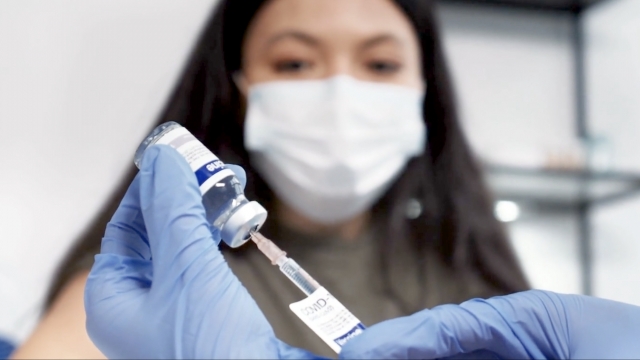Many of us probably know someone right now who has recently tested positive for COVID-19 — and scientists say the virus' mutations are partly to blame.
Now, health officials are looking at recent trends to see what will happen with infection rates through the holiday season and into the new year.
SEE MORE: States are trashing expired stocks of masks and other pandemic gear
The rise in COVID-19 cases is coming with yet another winter, and cases are going up across the United States.
The latest JN.1 variant makes up about 20% of new COVID-19 infections, according to data from the U.S. Centers for Disease Control and Prevention. The new variant is among the most contagious too, health officials warn.
The somewhat good news is that symptoms from JN.1 infections are milder, and health experts say it is not likely to send most people to the hospital like other variants.
Dr. William Schaffner, an infectious disease expert at Vanderbilt University's School of Medicine, said, "You can be miserable for several days with a runny nose, a sore throat. Bronchitis, feeling really puny and maybe also a little bit of fever."
Cases in the U.S. have more than doubled since last November, and with more people spending time outside and traveling during the holiday season, various factors are contributing to a rise in recorded cases. Waning immunity is also a variable in the equation.
Dr. Emily Lu is a primary care physician. She said, "People come into the clinic with a lot of preconceptions and, you know, honestly, the most heartbreaking one is that people are hoping that, you know, if they do all the right things, they definitely won't get sick. And the truth is, unfortunately, there isn't anything that's 100%."
Experts say to keep good ventilation in buildings and homes, to mask up when possible and to wash your hands often. People should also stay home when they are sick. Many of the same protocols that were urged so often during the height of the pandemic can also apply now during seasons like these.
The CDC says only about 18% of U.S. adults have received the latest vaccine booster for COVID-19.
Trending stories at Scrippsnews.com



